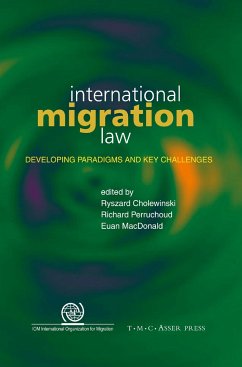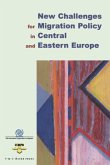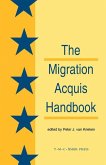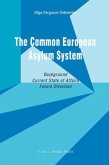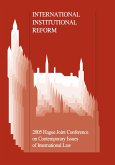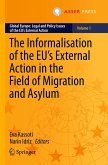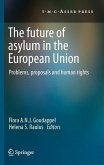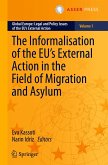With a Foreword by Brunson McKinley, Director General of the International Organization for Migration (IOM)
This book encapsulates the law of international migration by examining developments first addressed in the volume on Migration and International Legal Norms (edited by T.A. Aleinikoff and V. Chetail; T.M.C. Asser Press 2003) and by discussing wholly new themes. In this regard, the book considers emerging issues, such as the challenges posed by migration to State sovereignty and the protection of human rights as a result of the increasing tensions between anti-terrorism or security legislation and immigration measures, the impact of the use of biometrics technology (e.g. fingerprinting) to identify and better monitor international movements of persons, and enhanced cooperation on the European Union external border. The human rights of vulnerable groups of migrants, such as migrant workers, women, victims of trafficking, and stateless persons are also examined.
The issue of forced migration warrants a consideration of the international migration law relating to groups such as internally displaced persons, as well as the international community's response to secondary movements of asylum-seekers. Questions of state responsibility concerning, for example, stranded migrants and provision of consular protection and assistance to migrants are also discussed. Moreover, the expansion of regional legal frameworks concerned with migration, such as EU immigration and asylum law and policy and the growing case law on European citizenship, as well as developments in free movement regimes in Africa, the Americas and the Caribbean, are added to the analysis of the growing body of international migration law.
A range of persons from international organizations, legal practice and academia with expertise in International Migration Law have contributed to this volume, which is aimed at a broad audience, including policy makers, academics, researchers, postgraduate students, legal practitioners, civil society representatives and journalists.
Ryszard Cholewinski is Labour Migration Specialist in the Migration Policy, Research and Communications Department of IOM, the International Organization for Migration, in Geneva. In the same organization, Richard Perruchoud is Director of the International Migration Law and Legal Affairs Department. Euan MacDonald holds a PhD in public international law from the European University Institute in Florence.
This book encapsulates the law of international migration by examining developments first addressed in the volume on Migration and International Legal Norms (edited by T.A. Aleinikoff and V. Chetail; T.M.C. Asser Press 2003) and by discussing wholly new themes. In this regard, the book considers emerging issues, such as the challenges posed by migration to State sovereignty and the protection of human rights as a result of the increasing tensions between anti-terrorism or security legislation and immigration measures, the impact of the use of biometrics technology (e.g. fingerprinting) to identify and better monitor international movements of persons, and enhanced cooperation on the European Union external border. The human rights of vulnerable groups of migrants, such as migrant workers, women, victims of trafficking, and stateless persons are also examined.
The issue of forced migration warrants a consideration of the international migration law relating to groups such as internally displaced persons, as well as the international community's response to secondary movements of asylum-seekers. Questions of state responsibility concerning, for example, stranded migrants and provision of consular protection and assistance to migrants are also discussed. Moreover, the expansion of regional legal frameworks concerned with migration, such as EU immigration and asylum law and policy and the growing case law on European citizenship, as well as developments in free movement regimes in Africa, the Americas and the Caribbean, are added to the analysis of the growing body of international migration law.
A range of persons from international organizations, legal practice and academia with expertise in International Migration Law have contributed to this volume, which is aimed at a broad audience, including policy makers, academics, researchers, postgraduate students, legal practitioners, civil society representatives and journalists.
Ryszard Cholewinski is Labour Migration Specialist in the Migration Policy, Research and Communications Department of IOM, the International Organization for Migration, in Geneva. In the same organization, Richard Perruchoud is Director of the International Migration Law and Legal Affairs Department. Euan MacDonald holds a PhD in public international law from the European University Institute in Florence.

